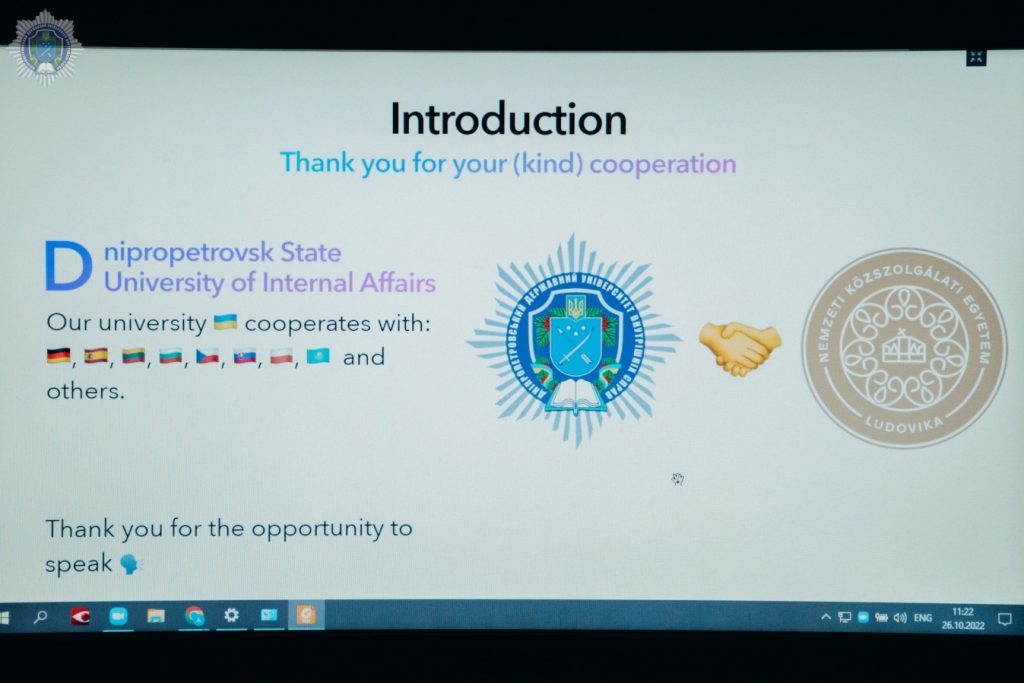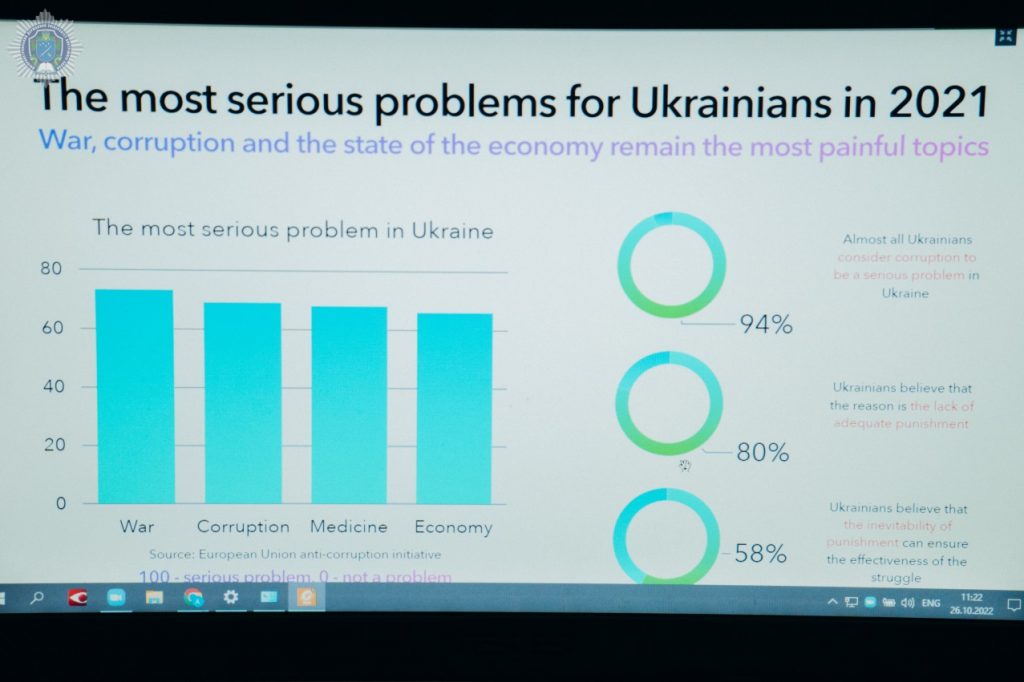Scientists of the Dnipropetrovsk State University of Internal Affairs took part in the International Research Symposium “1. Ludovika International Law Enforcement Research Symposium (LILERS)”. The event was held by the Budapest University of Public Service (Hungary) on the basis of the Faculty of Law Enforcement with the aim of discussing the most pressing issues of the work of law enforcement agencies in Europe.

The event was attended by scientists, law enforcement officers, teachers and students of higher education from police academies of the countries of the European Union and throughout Europe.
The ceremonial opening of the event and the plenary session were opened by the Dean of the Faculty of Law Enforcement of the Budapest University of Public Service, Doctor of Science, Professor, Major General of the Police Gabor Kovacs, who welcomed the participants and outlined the current problems of law enforcement agencies, which are relevant for Europe in the context of security challenges.

In the framework of the plenary session, Ilin Savov, professor of the Academy of the Ministry of Internal Affairs of Bulgaria, associate professor of the Faculty of Health and Social Sciences of the Police Academy of the Czech Republic in Prague Otakar Jiri Mika, and teacher of the Department of General Legal Disciplines of the National Institute of Law and Innovative Education of the Dnipropetrovsk State University of Internal Affairs Ihor Nalivayko made introductory speeches.


The representative of DSUIA presented the areas of activity of the educational institution. He focused on the results related to the cooperation of public organizations with prevention, and also focused on changes in Ukrainian anti-corruption legislation.

The symposium combined 2 discussion sessions: “Law enforcement management and police education”, “Crime prevention, criminal intelligence and criminal justice” and a free discussion platform.
They also discussed the issue of ensuring public order, countering corruption, innovations in law enforcement education and science, the impact of the pandemic on law enforcement, economic and Internet crime, etc.
Discussion panels ended with summaries and determination of further priority areas of work.
As noted in the department of international relations, today, despite the war, the university is developing active international cooperation with law enforcement universities and research centers in Europe. The subject of international cooperation covers the development of all areas of training of higher education seekers and the strengthening of the international experience of scientific and pedagogical workers with the aim of integrating domestic science into the global scientific network.
— 658

